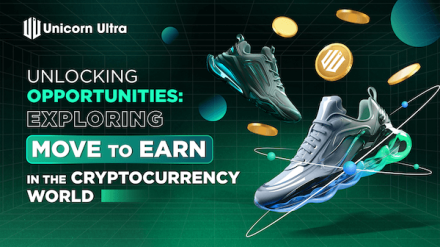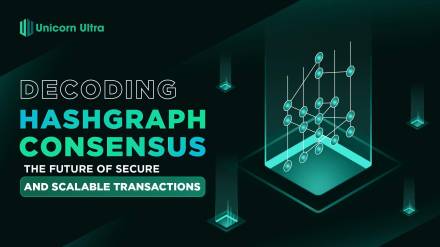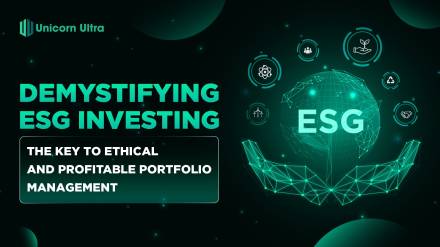In the world of blockchain technology, smart contracts have gained significant attention for their ability to execute self-executing agreements without the need for intermediaries. However, there is a fundamental limitation that smart contracts face—their inability to access and process real-world data directly. This is where oracles come into play. In this blog post, we will delve into what is oracle, the concept of oracles, explore the blockchain oracle problem, understand why smart contracts need oracles, examine how blockchain oracle services work, and discuss the diverse applications of oracles in smart contracts.
Table of Contents
What is Oracle?
What is oracle? An oracle can be defined as a bridge between blockchain networks and external data sources. It serves as a trusted intermediary that retrieves and verifies off-chain data and then provides it to smart contracts on the blockchain. Essentially, oracles act as data carriers, enabling decentralized applications (DApps) to interact with real-world information.
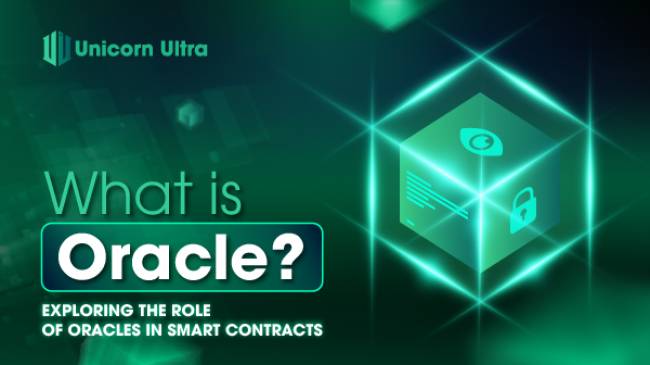
Blockchain Oracle Problem
The blockchain oracle problem arises due to the inherent nature of blockchain technology, which is based on decentralized consensus and immutability. While these characteristics provide security and transparency, they also limit the ability of smart contracts to access real-time and real-world data. Blockchain networks are isolated environments that operate within their own ecosystems, making it challenging for smart contracts to interact with external sources, such as market prices, weather data, or stock market information.
Why do Smart Contracts Need Oracles?
Smart contracts are designed to execute predefined actions based on specific conditions. However, many real-world agreements depend on external data or events for their execution. For instance, a smart contract for an insurance claim might require data on a weather event or an accident report to determine whether the conditions for a payout have been met. Without oracles, smart contracts would remain isolated and unable to access the information necessary for their execution, significantly limiting their functionality.
What is Oracle used for?
In the context of blockchain and smart contract technology, an Oracle refers to a trusted source of off-chain data or information that is integrated with a blockchain network. Oracles play a crucial role in connecting blockchain-based applications with the external world. Here are some key uses of Oracles:
- Data Feeds: Oracles provide a means to fetch real-time data from external sources and feed it into smart contracts or decentralized applications (DApps). This data can include market prices, weather conditions, sports scores, stock prices, and more. Oracles enable smart contracts to react to real-world events and make decisions based on up-to-date information.
- Decentralized Finance (DeFi): Oracles are essential in DeFi applications, which require accurate and timely price information for various assets. They provide price feeds for determining asset values, calculating exchange rates, and facilitating activities such as decentralized lending, stablecoin management, decentralized exchanges (DEXs), and prediction markets.
- Supply Chain and IoT: Oracles enable the integration of blockchain technology with supply chain management systems and Internet of Things (IoT) devices. They can provide real-time data on product provenance, logistics, temperature monitoring, quality checks, and other relevant information, ensuring transparency, trust, and tamper-proof records throughout the supply chain.
- Gaming and Randomness: Oracles can be used to generate and verify random numbers on the blockchain, ensuring fairness in gaming applications, lotteries, or other scenarios requiring randomness. Oracles help eliminate the risk of manipulation or bias in generating random values.
- Real-World Event Triggers: Oracles enable smart contracts to respond to real-world events or triggers. For example, insurance smart contracts can use Oracles to verify and trigger payouts based on predefined conditions, such as flight delays, natural disasters, or other insured events.
- Identity Verification: Oracles can assist in identity verification processes by connecting with external identity verification services. This enables blockchain-based applications to verify user identities and ensure compliance with Know Your Customer (KYC) and anti-money laundering (AML) regulations.
- Cross-Chain Communication: Oracles facilitate communication and interoperability between different blockchain networks. They enable the exchange of data and value between disparate blockchain ecosystems, supporting the development of cross-chain applications and functionalities.
Oracles are essential in expanding the capabilities and use cases of blockchain technology by bridging the gap between the on-chain and off-chain worlds. They provide trusted and verifiable data from external sources, enabling smart contracts and decentralized applications to interact with the real world in a secure and reliable manner.
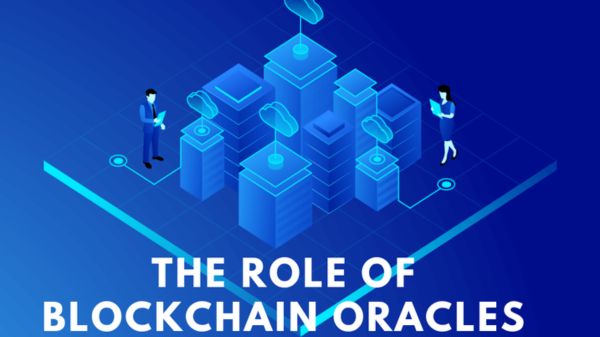
How does a Blockchain Oracle Service Work?
Blockchain oracle services act as intermediaries that facilitate the communication between smart contracts and external data sources. Here's a simplified overview of how a blockchain oracle service typically works:
- Data Acquisition: The oracle retrieves data from trusted sources, such as APIs, web scraping, or IoT devices. This data can include real-time market prices, weather updates, sports scores, or any other information required by the smart contract.
- Data Verification: The oracle validates the acquired data to ensure its integrity and accuracy. This step is crucial to maintain the trust and reliability of the oracle service.
- Data Transmission: Once the data is verified, the oracle transmits it to the smart contract on the blockchain, making it accessible for execution. The transmission can occur through various methods, such as API calls or specialized protocols.
What are the advantages and disadvantages of Oracle?
Advantages of Oracles:
- Access to External Data: Oracles enable blockchain applications to access real-world data and information that resides outside the blockchain network. This access expands the functionality and use cases of blockchain technology, allowing for the creation of decentralized applications that interact with real-world events and data sources.
- Data Integrity and Trust: Oracles provide a mechanism for verifying and validating external data before it is used within smart contracts or decentralized applications. By utilizing trusted oracles, developers and users can have confidence in the accuracy and integrity of the data being fed into the blockchain.
- Real-Time Data Updates: Oracles can fetch real-time data and feed it into smart contracts, enabling applications to react to current market conditions or events. This real-time data access allows for more dynamic and responsive blockchain applications that can adapt to changing circumstances.
- Enhanced Smart Contract Functionality: Oracles enable smart contracts to perform more complex operations by incorporating external data. Smart contracts can make decisions based on real-world conditions, such as adjusting prices, triggering events, or settling transactions, thereby enhancing their functionality and utility.
- Interoperability: Oracles facilitate interoperability between different blockchain networks and external systems. They enable the exchange of data and value across disparate blockchain ecosystems, fostering collaboration and expanding the possibilities for cross-chain applications.
Disadvantages of Oracles:
- Centralization and Trust Dependency: Some oracles introduce a level of centralization or reliance on trusted entities to provide accurate data. If the oracle itself is compromised or provides inaccurate information, it can impact the reliability and integrity of the blockchain application relying on that data.
- Single Point of Failure: Oracles can become a single point of failure if they experience downtime, manipulation, or data feed disruptions. This dependency on a single source for data introduces vulnerabilities and potential risks to the functioning of decentralized applications.
- Security Risks: Poorly implemented oracles can introduce security vulnerabilities into blockchain networks. Inadequate security measures can expose the oracle and the data it provides to manipulation, hacking, or unauthorized access, potentially compromising the integrity of the entire system.
- Privacy Concerns: Oracles may require access to sensitive data or personal information to provide their services. This can raise privacy concerns, especially if the oracle is not properly designed or lacks robust privacy protection mechanisms.
- Reliability and Accuracy: Oracles rely on external data sources, and the accuracy of that data is crucial. If the external data sources are unreliable, manipulated, or compromised, it can result in incorrect or misleading information being fed into the blockchain application, potentially leading to unintended consequences or inaccurate decisions.
To mitigate the disadvantages associated with oracles, it's important to carefully select reputable and trusted oracle providers, implement security best practices, conduct thorough audits, and consider multiple sources of data for verification. The development of decentralized oracle networks and the use of cryptographic proofs can also enhance the security and trustworthiness of oracles.
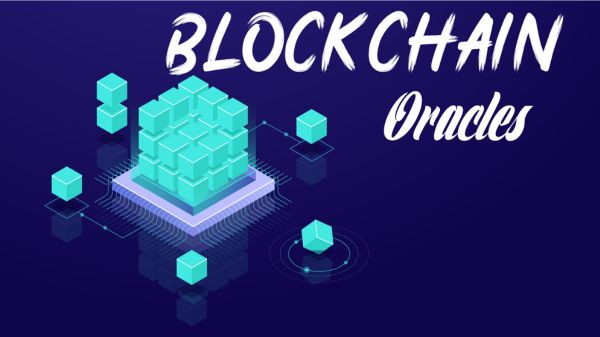
How to use Oracle?
Using an Oracle involves integrating it into a blockchain-based application or smart contract. Here are the general steps to use an Oracle:
- Identify the Oracle Service: Research and identify a reliable and trusted Oracle service that suits your specific use case. Consider factors such as the Oracle's reputation, track record, security measures, data sources, and pricing.
- Determine Data Requirements: Determine the specific data or information you need from the external world to enhance the functionality of your application or smart contract. This could include market prices, weather data, real-time events, or any other relevant information.
- Integrate the Oracle Service: Integrate the chosen Oracle service into your application or smart contract. This involves utilizing the Oracle's APIs, libraries, or software development kits (SDKs) to connect your code with the Oracle's data feeds or functionalities.
- Define Data Requests: Specify the parameters and criteria for the data you need from the Oracle. This may include the data source, data format, frequency of updates, and any other relevant details.
- Request Data: Utilize the Oracle's provided methods or functions to request the desired data. This typically involves making API calls or invoking specific functions within your code to trigger the data retrieval process.
- Data Validation and Verification: Validate and verify the received data from the Oracle to ensure its accuracy, integrity, and authenticity. Implement appropriate mechanisms to cross-reference and validate the data against multiple sources or consensus algorithms, if necessary.
- Utilize Data in Your Application: Integrate the retrieved data into your application or smart contract logic to enable real-time decision-making, trigger events, update state variables, or perform any other required operations based on the external data.
- Security Considerations: Implement necessary security measures to protect against potential risks associated with using an Oracle. This may involve securing your communication with the Oracle, verifying the Oracle's authenticity, implementing data encryption, or considering other relevant security practices.
- Testing and Monitoring: Thoroughly test the integration of the Oracle within your application or smart contract to ensure proper functionality and reliability. Continuously monitor the Oracle's performance, data accuracy, and any updates or changes to the Oracle service to maintain the desired functionality.
It's important to consult the documentation and resources provided by the specific Oracle service you are using, as the integration process may vary based on the Oracle provider's implementation and the programming language or framework you are using. Additionally, follow best practices, conduct due diligence on the Oracle service, and consider auditing the integration to ensure the security and reliability of your application or smart contract.
Applications of Oracles in Smart Contracts
The integration of oracles with smart contracts opens up a plethora of possibilities for decentralized applications. Here are a few notable applications of oracles in smart contracts:
- Decentralized Finance (DeFi): Oracles play a crucial role in DeFi applications by providing real-time price feeds for cryptocurrencies, enabling accurate token swaps, lending and borrowing, and ensuring fair liquidations.
- Supply Chain Management: Oracles can facilitate transparency and traceability in supply chains by verifying real-world events such as shipping updates, inventory levels, and product authenticity.
- Insurance and Betting: Oracles enable smart contracts to automatically trigger insurance claims or execute bets based on external events, such as flight delays, sports game outcomes, or weather conditions.
- Real Estate: Smart contracts can leverage oracles to automate property transactions by retrieving and validating title deeds, ownership records, and property valuations.
Oracle's Future
The future of Oracles in blockchain technology is promising, with several developments and trends shaping their evolution. Here are some key aspects to consider for the future of Oracles:
- Increased Adoption: As blockchain technology continues to gain traction across various industries, the demand for Oracles is expected to grow. More businesses and organizations will recognize the need to connect their blockchain-based applications with real-world data, fostering greater adoption of Oracles.
- Enhanced Security and Trust: To address concerns around the security and trustworthiness of Oracles, advancements in technology and protocols will focus on improving their security features. This includes the development of decentralized oracle networks and the implementation of cryptographic proofs to ensure the integrity and reliability of data feeds.
- Decentralized Oracle Networks: Decentralized oracle networks aim to eliminate single points of failure and increase resilience. These networks leverage distributed consensus mechanisms to provide data feeds, ensuring that multiple independent sources verify and validate the accuracy of the information.
- Integration with AI and Machine Learning: Oracles can leverage AI and machine learning technologies to improve data analysis and verification processes. Smart contract-enabled AI Oracles could enhance the capabilities of blockchain applications by processing complex data and making intelligent decisions based on real-time information.
- Privacy-Enhancing Oracles: Privacy concerns will drive the development of privacy-enhancing Oracles. These Oracles will focus on protecting sensitive data and ensuring privacy compliance, enabling blockchain applications to securely access and utilize external information while maintaining confidentiality.
- Standardization and Interoperability: Efforts towards standardizing Oracle interfaces and protocols will facilitate interoperability between different Oracle solutions and blockchain networks. Standardization will streamline integration processes and enable seamless communication and data exchange across various systems.
- Expansion of Data Sources: Oracles will incorporate an expanding range of data sources, including IoT devices, social media feeds, supply chain systems, and more. This broader data availability will enhance the versatility and applicability of blockchain applications, opening up new use cases and opportunities.
- Regulatory Considerations: As the blockchain space matures, regulators are likely to establish guidelines and regulations surrounding the use of Oracles. Compliance with these regulations will become crucial, leading to the development of Oracle solutions that address legal and regulatory requirements.
Overall, the future of Oracles is characterized by increased security, decentralization, privacy, and integration with emerging technologies. As the blockchain ecosystem continues to evolve, Oracles will play a pivotal role in bridging the gap between on-chain and off-chain data, enabling the seamless integration of blockchain technology with real-world information and applications.
Oracles serve as the vital link between blockchain networks and real-world data, enabling smart contracts to access and process external information accurately and efficiently. Their integration with blockchain technology expands the functionality and potential use cases of decentralized applications, ranging from finance and supply chain management to insurance and real estate. As blockchain technology continues to evolve, oracles will play an increasingly significant role in connecting the digital and physical worlds, fostering trust, and driving innovation in the decentralized ecosystem. Understanding what is oracle and its role in smart contracts is essential for grasping the full potential of this transformative technology. Let's go with Uniultra to follow the latest information on the market.



